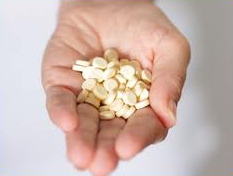Ativan Addiction Treatment Programs
Ativan, also known by its generic name Lorazepam, is a commonly used treatment for insomnia and anxiety conditions. Not surprisingly, many people have at some point in their lives taken or heard of this drug. In terms of its addictive properties, data collected by the Substance Abuse & Mental Health Services Administration show drug treatment admissions for Ativan and Ativan-like drugs tripled between the years 1998 and 2008 while other drug-related admissions only increased by 11 percent. Ativan addiction treatment programs serve a very real need for people who either knowingly or unknowingly became addicted to this drug.
Ativan’s Effects
Ativan belongs to the benzodiazepine class of prescription drugs. Benzodiazepines specifically target the brain and central nervous system to produce an overall calming effect on the mind and body. For many people, feelings of euphoria and well-being also occur.

There are different types of Ativan addiction treatment programs.
Ativan does this by stimulating GABA neurotransmitter secretions in the brain. While this process works well for those who can’t sleep or feel anxious, over time, the body and brain become dependent on the presence of the drug to function normally.
This means when a person stops taking Ativan, unpleasant, and sometimes dangerous withdrawal symptoms appear, some of which include:
- Tremors
- Vomiting
- Insomnia
- Convulsions
- Muscle cramping
Withdrawal symptoms can become so distressing to the point where a person develops cravings for Ativan. For these reasons, ativan addiction treatment becomes a necessary means for stopping the drug.
Treatment Objectives
Ativan addiction treatment should use a two-pronged approach throughout the treatment process. As both physical and psychological cravings for the drug can cause a person to relapse, any type of Ativan addiction treatment must work on both aspects of a person’s addiction.
For some people, Ativan addiction treatment will include a detoxification phase to clear out all traces of the drug from the system. Many programs use therapy approaches, such as behavioral modification and/or cognitive therapy to help a person learn new coping skills for relieving anxiety and coping with stress. Treatment program participants also engage in group therapy sessions. Later on in the recovery process, support groups will play a more central role in a person’s recovery.
Types of Treatment
Someone who’s been taking the drug for a long time will most likely require a comprehensive Ativan addiction treatment approach. This entails actually living at a treatment facility for a while. Residential programs take the form of inpatient treatment. Inpatient treatment programs are used for people who go through the detox phase and remain in a facility during the first few months of recovery. These programs can run anywhere from 30 to 90 days depending on how severe a person’s addiction is.
Ativan addiction treatment may also include outpatient care that allows participants more freedom in terms of living at home and going to work. Many outpatient programs include a daily check-in routine where a person meets with a drug counselor every day. Group sessions and educational instruction may also be included with an outpatient program.
Ultimately, the type of Ativan addiction treatment you decide on will play a pivotal role in the success of your recovery so be sure to carefully consider your options.
Resources:
Substance Abuse & Mental Health Services Administration
http://www.samhsa.gov/data/2k11/WEB_TEDS_028/WEB_TEDS-028_BenzoAdmissions_HTML.pdf



